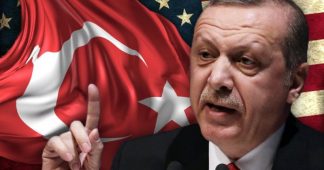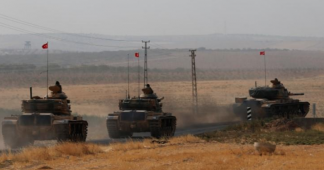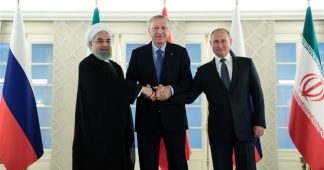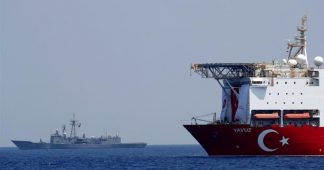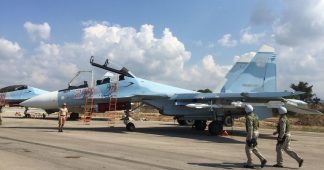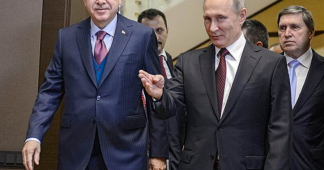Last week in Turkey: The end of Turkey’s balancing act between Washington and Moscow
By Onur Sinan Güzaltan
Feb. 25, 2020
Since this February, political tensions have become worse with each passing day among the Ankara-Moscow-Damascus triangle.
Ankara insists on maintaining control of Idlib while the Syrian government continues its military campaign against the rebel groups in the region with the support of the Russian army.
Russian military support to the Syrian government against the Turkish-backed rebels has naturally provoked political and military conflicts between Ankara and Moscow, despite the fact that the two had developed relatively good economic, political and military relations.
Turkey’s answer to Russia’s support for the Syrian government was a political shift back toward Washington.
In an interview with CNN Turk, Turkish Minister of Defense Hulusi Akar made yet another attempt at striking a political balance between Washington and Moscow.
Read more at https://uwidata.com/8254-last-week-in-turkey-the-fall-of-the-balance-politics-between-washington-and-moscow/
Idlib: Can the center of rivalry become a zone of cooperation?
By Mehmet Perinçek
Feb.22, 2020
In order to understand the events in Idlib, it will be useful to briefly summarize the process, up until November 15, 2015.
Consensus of the November 15th 2015
On November 15th 2015, Erdogan and Putin held a meeting in Antalya, taking the use of the G-20 summit. The meeting had an important secret agenda.
Even Putin at first, did not know about this agenda. Erdogan has addressed his Russian counterpart as “Volodya” (a sincere informal version of the name Vladimir), and said that the Turkish Army would launch an operation on the Syrian territory. The Russian President has responded to these statements from Erdogan, by saying “we will look the other way”. Moscow had turned a green light, on the Turkey’s operation abroad.
Read more at https://uwidata.com/8185-idlib-can-the-center-of-rivalry-become-a-zone-of-cooperation/
Libya-Turkey 2020: Mavi Vatan, risks, international coalitions and the parallel state
Feb. 01, 2020
The signing of a memorandum between Erdoğan and Sarraj regarding maritime boundaries was one of the most crucially important events for Turkey in 2019. The memorandum was important as a geopolitical counterbalance to the Greece-Israel-Egypt block which opposes Turkey in the region. The memorandum sets new contours of Turkish control in the Eastern Mediterranean. Our analysis of the geopolitics of Mavi Vatan will help clarify the critical nature of this memorandum.
Read more at https://uwidata.com/6849-libya-turkey-2020-mavi-vatan-risks-international-coalitions-and-the-parallel-state/
